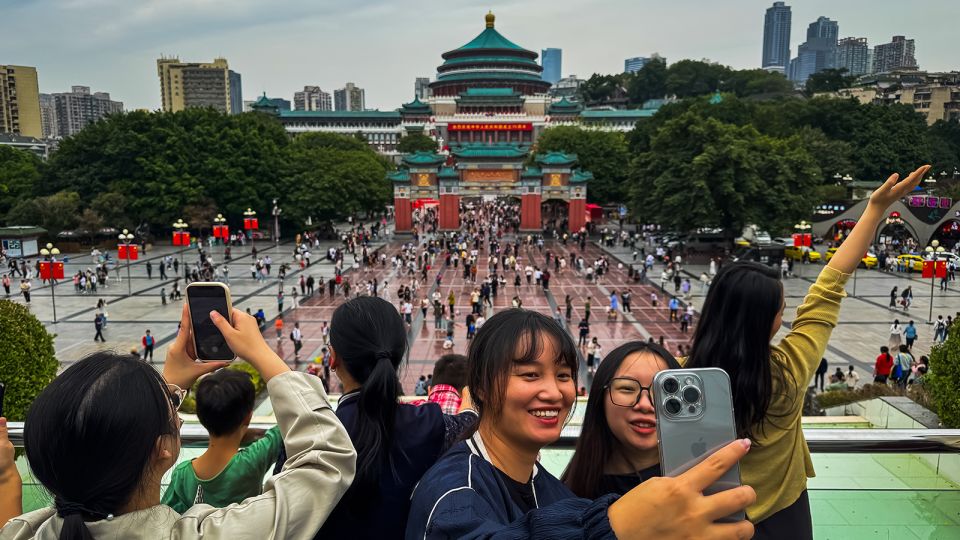During China’s recent Golden Week holiday, global investors demonstrated exuberance by heavily investing in various sectors related to the country, reflecting a sense of optimism from abroad. However, this positive sentiment has not translated effectively within China, where the consumer atmosphere appears subdued. Goldman Sachs highlighted this disparity in a Tuesday research note, indicating that tourism revenue per person fell 2.1% below pre-pandemic levels during the National Day Golden Week. Such trends underscore a persistent issue with weak consumer confidence, as the data suggests that both tourism spending and services prices remained low. Analysts express concern that enduring low domestic demand will necessitate significant interventions from the government to rebuild consumer confidence and stimulate economic normalization.
To address the stagnation, economists, including those at Goldman Sachs, advocate for a substantial stimulus package, potentially worth up to 10 trillion yuan (approximately $1.4 trillion). They argue that targeted fiscal policies could invigorate domestic consumption, stabilize price trends, and ultimately restore confidence among consumers. The directive underlines the challenges China faces post-pandemic, as the market still reflects low consumer engagement despite prior optimism surrounding the reopening of borders. The significant dip in hotel prices and airfares during the holiday compared to previous years further illustrates the underlying weaknesses within the economic structure.
Despite these issues, there were notable positive developments during the holiday period. Official statistics indicated a significant increase in cross-border travel, with travel rates jumping by roughly 26%, amounting to 13 million trips compared to the same timeframe last year. The volume of international flights also experienced a substantial rise, climbing by 42% compared to a low base year in 2023. These statistics communicate a growing inclination towards travel and mobility, albeit juxtaposed against an otherwise struggling domestic consumer landscape.
In response to an array of concerning economic data that emerged over the summer, Chinese leader Xi Jinping resorted to implementing a long-awaited stimulus package centered mainly on monetary policy by late September. This policy shift invigorated stock markets, propelling a wave of optimism that suggested a renewed focus on economic revitalization. Investor interest surged, with prominent figures like billionaire David Tepper revealing strategies to invest heavily in Chinese markets following the announcement. This inclination toward bullish investment reflects a collective hope for improved economic resilience.
However, optimism proved fleeting as stock markets in Shanghai and Shenzhen witnessed a notable downturn following a recent peak. The decline prompted concern among investors following a lack of substantial stimulus announcements from the National Development and Reform Commission. The absence of concrete measures was seen as a disappointment, cutting into the earlier gains experienced by the market and reinforcing worries regarding ongoing economic struggles. Additionally, the Hong Kong benchmark Hang Seng Index slipped sharply, underlining a volatile response to the mixed economic news.
Looking ahead, global investors are anxiously awaiting further announcements from Chinese financial authorities, particularly a press conference scheduled with the Ministry of Finance that carries high expectations for more direct stimulus measures. The anticipation of these forthcoming discussions illustrates the delicate balance the Chinese economy must navigate between managing investor expectations and addressing the pressing need for real economic recovery. The overarching sentiment highlights a broader narrative where despite pockets of optimism, the road to durable recovery remains fraught with challenges, requiring decisive action from both the government and financial stakeholders.

